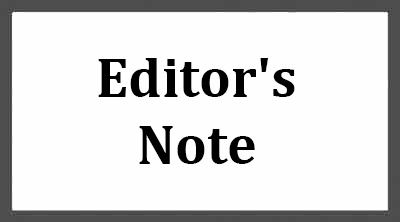The shocking, heinous and heartbreaking terrorist attack on a CRPF convoy in Pulwama in Jammu and Kashmir, that caused the tragic loss of 40 CRPF men, has immersed our entire country in a pall of gloom and grief. This tragedy once again puts the spotlight on what The Rotary Foundation is attempting through its Peace programme, where it has forged a partnership with seven reputed universities (six Peace Centres) across the world for studies in Peace and Conflict Resolution. The Peace Fellows it sponsors are carefully chosen from a wide range of outstanding individuals with the potential to contribute towards peace and conflict resolution. Recently, a committee headed by PRIP and TRF Trustee K R Ravindran decided to make small adjustments to the Peace Fellow curriculum to make it less academic and more practical to give better employment opportunities to its Fellows. “We are also offering electives that relate to our six Areas of Focus so that graduates can work with Rotary clubs on joint projects as we want them to be part of the family of Rotary. Remember that peace is not simply the absence of war but also derives from the elimination of want,” says Ravindran.

There is so much violence and conflict that is tearing our world apart today. The Syrian refugee crisis is arguably the largest refugee and displacement crisis in modern times. Since 2011, this civil war has forced an estimated 5.5 million people to flee their homes in Syria. And a huge sea of people, once proud and prosperous citizens of a nation like Syria, are now reduced to begging for asylum in alien lands where they often land packed like sardines in unauthorised boats. So many drown in that dangerous voyage; but who is counting?
The crucial question is how much can peace programmes such as TRF’s help to dent violence and conflict and bring sanity and peace into our troubled world. Every year, Rotary sponsors 100 scholars, 50 each for its short and long-term peace programmes, at the six Rotary Peace Centres. TRF Trustee Gulam Vahanvaty says TRF has sponsored peace fellows from across the world, including India and Pakistan, who have been working in voluntary organisations as well as government, “and are equipped with the right skills and training through our Peace programme to help resolve problems across the world and bring peace.” A police officer from Maharashtra, Praveen Dixit, who later went on to hold the highest police post — that of the Director General of Police — was one of the first Peace Fellows, graduating from the Duke University/University of North Carolina Centre. He acknowledges from various platforms the kind of impact the curriculum and his training as a Peace Fellow has had on his functioning as a police officer.
In recent years, as the Asian, Middle Eastern and African nations have seen much more conflict, TRF’s decision to set up more peace centres in Africa, the Middle East and Latin America gains significance. Feasibility studies in Africa have already begun.
The distrust inherent in resolving conflict in order to get peaceful solutions to geo-political problems need chipping away, as trust building takes a long time. And many more organisations need to join Rotary in the elusive quest for calm and peace in our world. Jingoism and wars can only create more problems, more bloodshed and more misery and displacement of people, but talking peace is not easy when there is so much of anger and anguish as we see in India after the latest act of terror.
Rasheeda Bhagat





